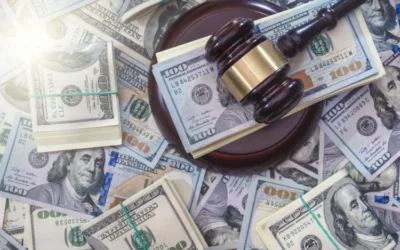Restoration of Rights in Arizona
What rights are suspended following a felony conviction?
When a person is convicted of a felony, they lose certain civil rights. See A.R.S. 13-904. Specifically, they lose:
-
- The right to vote.
- The right to hold public office.
- The right to serve as a juror.
- The right to possess a firearm.
- Any rights during any period of incarceration necessary to protect the public.
The two rights that are typically most important to people are the right to vote and the right to possess a firearm.
Why seek to set aside a conviction and restore rights?
-
- Restore the ability to own or even possess a firearm.
- Restore the ability to vote.
- Improve employment opportunities.
- Increase the chances of obtaining a fingerprint clearance card.
- Improve your position in a child custody litigation.
How can these rights be restored?
The restoration of rights is made of of three components:
-
- Setting aside the conviction.
- Restoring civil rights except the right to possess a firearm.
- Restoring the right to possess a firearm.
A court may grant one, two, or all three of these components. The process involves submitting an application to the court asking the court to set aside the conviction and restore the defendant’s rights.
The process of asking the court to restore rights involves filing the application in the court where the conviction took place. This doesn’t necessarily mean the same judge that presided over the criminal case will also make the decision on the application. Judges change, but the application still needs to be in the same court.
It may take up to 4 months to get a ruling on the application. Further, the prosecution has an opportunity to present its position regarding the application.
If the court denies one or more of the things requested in the application, the defendant can always re-apply at a later date.
What happens once the court orders a conviction set aside and rights restored?
What is supposed to happen is this: The court notifies the Arizona Department of Public Safety (DPS), who maintains criminal records in Arizona. The FBI pulls criminal records from the individual states on about a weekly basis. So as soon as the Arizona records update, the national records should update pretty quickly.
In Arizona, if an issue arises with records not updating, it is typically a problem with DPS not having updated something correctly. The best way to make sure things are as they should be is to do the DPS fingerprint clearance card. You can get started on that here. When you get the results, there should be a form to complete if there are any errors. Complete the form and return it to DPS with copies of the orders granting the set aside and restoring rights.
Schedule a Free Consultation
Email us below and we’ll reach out.
Latest Blog Posts
How Can I Reduce The Penalties For A Criminal Traffic Ticket?
Can I Reduce The Penalties For A Criminal Traffic Ticket in Arizona? There are a variety of consequences that can result from a criminal traffic ticket conviction. Some are more serious than others. For most people, the issue at the top of the list is having to...
District Court Violation Notices and Collateral Forfeiture
What Is A District Court Violation Notice? And What Is Collateral Forfeiture?What Is A United States District Court Violation Notice? The federal government calls traffic tickets Violation Notices. At the top of the ticket, it will say "United States District Court...



